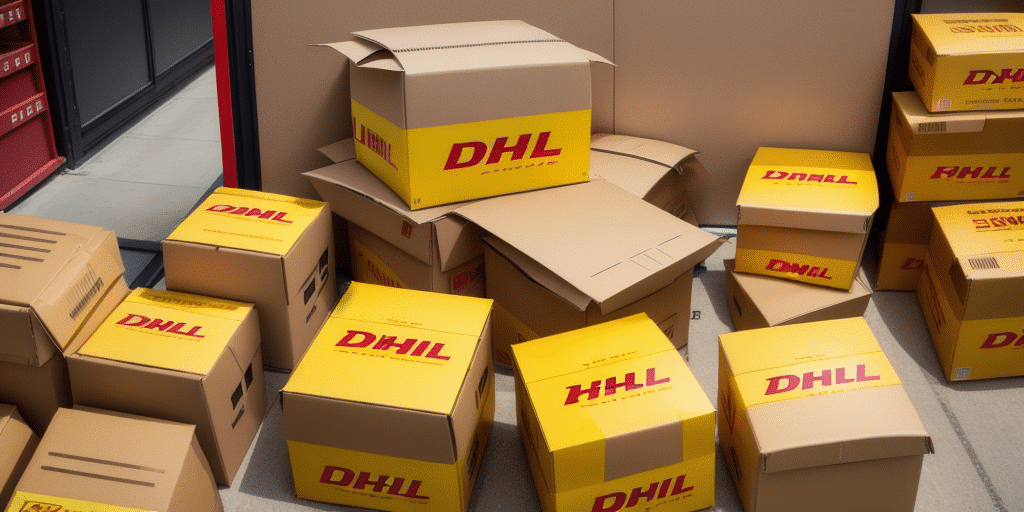Why DHL eCommerce is a Leading Solution for Warehouse Automation
In the rapidly evolving logistics landscape, warehouse automation is essential for businesses aiming to enhance efficiency and maintain a competitive edge. DHL eCommerce stands out as a premier solution, offering comprehensive features tailored to streamline warehouse operations. With capabilities such as real-time shipment tracking, automated inventory management, and scalable integration options, DHL eCommerce provides the tools necessary for businesses to optimize their supply chain effectively.
The Benefits of Automating Your Warehouse with DHL eCommerce
Implementing DHL eCommerce for warehouse automation delivers numerous advantages, including:
- Increased Efficiency and Productivity: Automation minimizes manual tasks, allowing for faster processing and higher throughput.
- Reduced Labor Costs: By automating routine operations, businesses can allocate labor resources to more strategic areas.
- Enhanced Accuracy: Automated systems reduce human errors, ensuring precise order fulfillment and inventory management.
- Real-Time Shipment Tracking: Gain visibility into shipment statuses, enabling proactive management of logistics.
- Improved Customer Satisfaction: Faster and more accurate deliveries lead to higher customer satisfaction and loyalty.
Moreover, DHL eCommerce facilitates:
- Optimized Inventory Management: Automated tracking helps prevent overstocking and stockouts.
- Supply Chain Visibility: Comprehensive insights into supply chain operations enhance decision-making.
- Seamless System Integration: Easily integrates with existing ERP and SCM systems for unified operations.
- Data-Driven Insights: Access to analytics empowers businesses to make informed strategic decisions.
These benefits collectively contribute to a more agile, responsive, and cost-effective warehouse operation.
Key Features of DHL eCommerce for Warehouse Automation
DHL eCommerce is equipped with a suite of features designed to enhance warehouse efficiency:
- Automated Inventory Management: Utilizes advanced algorithms to maintain optimal inventory levels.
- Real-Time Shipment Tracking: Provides up-to-the-minute information on shipment locations and statuses.
- Streamlined Order Fulfillment: Automates picking, packing, and shipping processes to expedite order handling.
- System Integration: Compatible with various Supply Chain Management (SCM) systems for seamless data flow.
- Returns Management: Efficiently handles returns and exchanges, improving customer service.
These features are crucial for connecting, optimizing, and managing warehouse operations effectively.
Integrating DHL eCommerce with Your Existing Systems
Connecting Your Warehouse Management System (WMS)
Integrating your Warehouse Management System (WMS) with DHL eCommerce is vital for seamless operations. DHL eCommerce offers multiple integration options, including APIs and EDI, ensuring compatibility with diverse systems.
Integration benefits include:
- Real-time inventory updates
- Automated order processing
- Enhanced data accuracy
For successful integration, it is recommended to involve IT specialists and leverage DHL's dedicated support services.
Enhancing Supply Chain Management (SCM) Integration
Seamlessly integrating DHL eCommerce with your existing SCM system ensures smooth data transfer and unified operations. This integration provides:
- Comprehensive visibility into supply chain activities
- Improved coordination between procurement, warehousing, and distribution
- Enhanced ability to forecast demand and manage resources efficiently
According to a report by McKinsey & Company, integrated SCM systems can reduce operational costs by up to 15%.
Maximizing Efficiency with Automated Inventory Management
Automated inventory management through DHL eCommerce enables precise tracking and control of inventory levels. Key benefits include:
- Real-Time Monitoring: Continuously tracks inventory to prevent discrepancies and ensure stock availability.
- Waste Reduction: Minimizes excess inventory and reduces the incidence of stockouts.
- Optimized Storage: Efficiently utilizes warehouse space, enhancing overall storage capacity.
Studies show that businesses implementing automated inventory systems can achieve a 20% increase in inventory accuracy, leading to significant cost savings and improved service levels.
Streamlining Order Fulfillment Processes
DHL eCommerce provides advanced automation solutions to streamline order fulfillment, encompassing:
- Automated Picking and Packing: Enhances speed and accuracy in preparing orders for shipping.
- Efficient Shipping Coordination: Integrates with multiple carriers to optimize shipping routes and costs.
- Order Tracking: Enables end-to-end visibility of order progress, enhancing transparency for customers.
Implementing these solutions can reduce order processing times by up to 30%, according to industry benchmarks from Forbes.
Enhancing Customer Experience with Real-Time Shipment Tracking
Real-time shipment tracking offered by DHL eCommerce empowers both businesses and customers with timely updates on order statuses. Benefits include:
- Increased Transparency: Customers can monitor their orders, reducing uncertainty and enhancing trust.
- Proactive Issue Resolution: Immediate visibility into shipment progress allows for swift addressing of delays or issues.
- Data-Driven Improvements: Analysis of tracking data helps identify bottlenecks and optimize delivery processes.
Enhanced tracking capabilities can lead to a 15% increase in customer satisfaction by providing reliable and transparent delivery information.
Managing Returns and Exchanges Effectively
Efficient management of returns and exchanges is a critical component of warehouse automation. DHL eCommerce facilitates this through:
- User-Friendly Returns Portal: Simplifies the return process for customers, improving their overall experience.
- Automated Processing: Streamlines the handling of returned items, ensuring quick restocking or disposition.
- Real-Time Tracking: Provides visibility into the status of returns, enabling better inventory management.
Effective returns management can decrease return processing time by up to 40%, enhancing operational efficiency and customer loyalty.
Overcoming Common Challenges in Implementing DHL eCommerce
Implementing DHL eCommerce for warehouse automation may present challenges such as:
- System Integration: Ensuring compatibility with existing ERP and SCM systems.
- Employee Training: Equipping staff with the necessary skills to operate new automated systems.
- Operational Disruptions: Minimizing downtime during the transition to automated processes.
To address these challenges, businesses should adopt best practices, including:
- Comprehensive Planning: Develop a detailed implementation roadmap outlining each phase.
- Stakeholder Involvement: Engage key stakeholders to ensure alignment and support.
- Continuous Training: Provide ongoing training and support to employees to facilitate smooth adoption.
With strategic planning and support from DHL eCommerce, these obstacles can be effectively mitigated.
Best Practices for Managing and Maintaining Your Automated Warehouse
Ensuring the longevity and efficiency of your automated warehouse solution involves:
- Regular System Monitoring: Continuously track system performance to identify and address issues promptly.
- Scheduled Maintenance: Perform routine maintenance to prevent unexpected downtimes and extend system lifespan.
- Employee Training: Keep staff updated on system updates and best practices to maintain operational efficacy.
- Data Analysis: Utilize analytics to assess performance metrics and identify areas for improvement.
- Disaster Recovery Planning: Develop and regularly test a disaster recovery plan to safeguard against data loss and system failures.
Adhering to these best practices ensures that your automated warehouse remains efficient, reliable, and adaptable to evolving business needs.
Measuring Success: Key Metrics to Track
To evaluate the effectiveness of DHL eCommerce automation, track the following metrics:
- Order Fulfillment Time: Measures the speed from order receipt to shipment.
- Inventory Turnover Rate: Indicates how frequently inventory is sold and replaced.
- Order Accuracy: Tracks the percentage of orders fulfilled correctly without errors.
- Return Rate: Monitors the frequency of returned orders, providing insights into product quality and customer satisfaction.
- Customer Satisfaction Scores: Assesses customer feedback to gauge satisfaction levels.
Monitoring these metrics facilitates continuous improvement and ensures that automation efforts align with business objectives.
Choosing the Right Partner for Your Warehouse Automation Journey
Selecting a reliable partner is crucial for successful warehouse automation. DHL eCommerce offers:
- Extensive Industry Experience: Leveraging years of expertise to provide tailored automation solutions.
- Comprehensive Support: Providing dedicated assistance throughout the implementation and maintenance phases.
- Cutting-Edge Technologies: Utilizing advanced technologies such as artificial intelligence and machine learning to enhance automation capabilities.
- Scalability: Offering solutions that can grow with your business, ensuring long-term sustainability.
Partnering with DHL eCommerce ensures access to industry-leading resources and expertise, facilitating a smooth and effective automation journey.
Conclusion
Warehouse automation is a strategic imperative for businesses seeking to enhance efficiency, reduce costs, and improve customer satisfaction. DHL eCommerce emerges as a leading solution, offering a robust suite of features designed to optimize warehouse operations. By integrating with existing systems, automating key processes, and providing real-time insights, DHL eCommerce empowers businesses to achieve operational excellence.
Effective implementation requires careful planning, employee training, and continuous monitoring. By adhering to best practices and leveraging DHL eCommerce's expertise, businesses can overcome common challenges and realize the full benefits of automation. Ultimately, partnering with DHL eCommerce not only streamlines warehouse operations but also drives sustainable growth and competitive advantage in the dynamic logistics landscape.




















